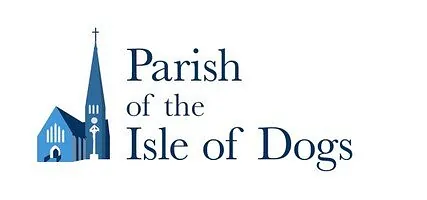07/08/2024 0 Comments
In a Declaration published last week, Orthodox theologians condemn Patriarch Kirill’s support for the Ukraine war
In a Declaration published last week, Orthodox theologians condemn Patriarch Kirill’s support for the Ukraine war
# News

In a Declaration published last week, Orthodox theologians condemn Patriarch Kirill’s support for the Ukraine war

THE Russian invasion of Ukraine on 24 February is a historic threat to a people of Orthodox Christian tradition. More troubling still for Orthodox believers, the senior hierarchy of the Russian Orthodox Church has refused to acknowledge this invasion, issuing instead vague statements about the necessity for peace in light of “events” and “hostilities” in Ukraine, while emphasising the fraternal nature of the Ukrainian and Russian peoples as part of “Holy Rus’,” blaming the hostilities on the evil “West”, and even directing their communities to pray in ways that actively encourage hostility.
The teaching states that there is a transnational Russian sphere or civilization, called Holy Russia or Holy Rus’, which includes Russia, Ukraine and Belarus (and sometimes Moldova and Kazakhstan), as well as ethnic Russians and Russian-speaking people throughout the world. It holds that this “Russian world” has a common political centre (Moscow), a common spiritual centre (Kyiv as the “mother of all Rus’’), a common language (Russian), a common church (the Russian Orthodox Church, Moscow Patriarchate), and a common patriarch (the Patriarch of Moscow), who works in “symphony” with a common president/national leader (Putin) to govern this Russian world, as well as upholding a common distinctive spirituality, morality, and culture.
SINCE the enthronement of Patriarch Kirill in 2009, the leading figures of the Moscow Patriarchate, as well as spokespersons of the Russian State, have continually drawn on these principles to thwart the theological basis of Orthodox unity. The principle of the ethnic organisation of the Church was condemned at the Council of Constantinople in 1872. If we hold such false principles as valid, then the Orthodox Church ceases to be the Church of the Gospel of Jesus Christ, the Apostles, the Nicene-Constantinopolitan Creed, the Ecumenical Councils, and the Fathers of the Church. Unity becomes intrinsically impossible.
IN VIEW of the “Russian world” teaching that is devastating and dividing the Church, we are inspired by the Gospel of Our Lord Jesus Christ and the Holy Tradition of His Living Body, the Orthodox Church, to proclaim and confess the following truths:
1. “My kingdom is not of this world. If my kingdom were of this world, my servants would fight, so that I should not be delivered to the Jews; but now my kingdom is not from here.” (John 18.36).
We affirm that the divinely-appointed purpose and accomplishment of history, its telos, is the coming of the Kingdom of our Lord Jesus Christ, a Kingdom of righteousness, peace and joy in the Holy Spirit, a Kingdom attested by Holy Scripture as authoritatively interpreted by the Fathers. This is the Kingdom we participate in through a foretaste at every Holy Liturgy: “Blessed is the kingdom of the Father, the Son and the Holy Spirit, now and ever and unto ages of ages!” (Divine Liturgy). This Kingdom is the sole foundation and authority for Orthodox, indeed for all Christians. There is no separate source of revelation, no basis for community, society, state, law, personal identity and teaching, for Orthodoxy as the Body of the Living Christ than that which is revealed in, by, and through our Lord Jesus Christ and the Spirit of God.
We therefore condemn as non-Orthodox and reject any teaching that seeks to replace the Kingdom of God seen by the prophets, proclaimed and inaugurated by Christ, taught by the apostles, received as wisdom by the Church, set forth as dogma by the Fathers, and experienced in every Holy Liturgy, with a kingdom of this world, be that Holy Rus’, Sacred Byzantium, or any other earthly kingdom, thereby usurping Christ’s own authority to deliver the Kingdom to God the Father (1 Corinthians 15.24), and denying God’s power to wipe away every tear from every eye (Revelation 21.4).
We firmly condemn every form of theology that denies that Christians are migrants and refugees in this world (Hebrews 13.14), that is, the fact that “our citizenship is in heaven, and it is from there that we are expecting a Savior, the Lord Jesus Christ,” (Philippians 3.20), and that Christians “reside in their respective countries, but only as sojourners. They take part in everything as citizens and put up with everything as foreigners. Every foreign land is their home, and every home a foreign land” (The Epistle to Diognetus, 5).


Comments